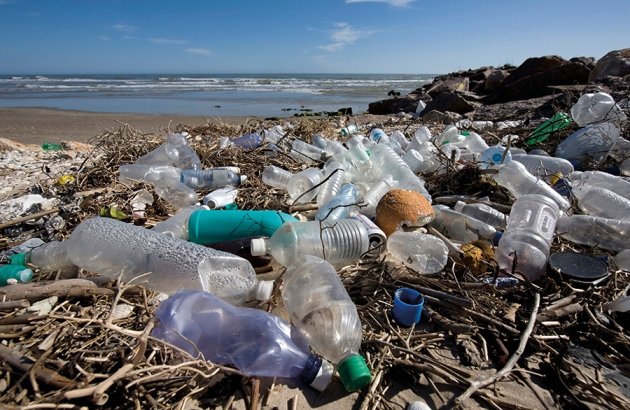Letter: Everyone shares in the worldwide plastics problem
Elementary school students research plastic pollution and ask everyone to start making changes
Hi, I'm Cooper Johnson, and I'm Peyton Hillier, and we want to tell you about the plastic pollution problems in the oceans and on the land. Did you know 5.25 trillion microplastics and 4.8 to 12.7 …
This item is available in full to subscribers.
Please log in to continue |
Register to post eventsIf you'd like to post an event to our calendar, you can create a free account by clicking here. Note that free accounts do not have access to our subscriber-only content. |
Day pass subscribers
Are you a day pass subscriber who needs to log in? Click here to continue.
Letter: Everyone shares in the worldwide plastics problem
Elementary school students research plastic pollution and ask everyone to start making changes
Hi, I'm Cooper Johnson, and I'm Peyton Hillier, and we want to tell you about the plastic pollution problems in the oceans and on the land. Did you know 5.25 trillion microplastics and 4.8 to 12.7 million tons of plastic are in our oceans?
Each day we pollute about 8 million pounds of trash, and at this rate, by 2050 we will have more plastic in the ocean than fish by weight.
Wherever you live, the easiest and most direct way that you can help stop this from happening is by reducing your own use of single-use plastics. Single-use plastics include plastic bags, water bottles, straws, cups, utensils, dry cleaning bags, take-out containers, and any other plastic items that are used once and then thrown away.
Another obvious thing you could do to help is when you use single-use plastics that can be recycled, always be sure to actually recycle them. People are just throwing plastic on the ground and then when someone comes across it they think, someone else will pick it up and then it just becomes a chain and the plastic never gets recycled or picked up. People should just think before they do, because it will eventually come back to you if it keeps happening and you will say, “man, I wish I didn’t do that.”
Also, tiny plastic particles, called microbeads, have been a bad problem in our ocean in recent years. Microbeads are found in some face scrubs, toothpaste and bodywashes, and they enter our oceans and waterways through our sewer systems and affect hundreds of marine species. Try to avoid products containing plastic microbeads by looking at the ingredient labels of your product.
Right now just 9% of plastic is recycled worldwide. That means 91% of the plastic goes to landfills or into the oceans.
Recycling helps keep plastics out of the ocean and reduces the amount of new plastic. If you need help finding a place to recycle plastic near you, check out Earth911’s recycling directory. It's also important to check with your local recycling center about the types of plastic they accept. The Barrington Recycle Center does not pick up trash from business owners and businesses, which means that they have to bring it to the recycle center manually or they throw it out in the trash, instead of recycling. That sounds like a big problem, and the people of Barrington have to do something before the problem gets even worse.
You can also help remove plastics from the ocean and prevent them from getting there in the first place by participating in, or organizing a cleanup of your local beach or water near you. You can even go to cleanups right here in town. They happen every Earth Day in April, so go to your local beach and give a helping hand.
You can simply go to the beach or waterway near you and collect plastic waste on your own or with friends and family; you can make every day an Earth Day.
Taking care of oceans and waterways requires hard work, and staying informed about what you can do is hard work, too. Read up on the latest products that have been named harmful to the ocean or environment.
One thing everybody uses is salt. Did you know that 90% of your sea salt has microplastics, and your computer is 40% plastic? Each year, 44.7 million metric tons of electronics are thrown away, and a family of four throws away 176 pounds of electronics each year. A couple of ways we can help is instead of throwing away our electronics, we can find a way to reuse them or pass them down to others.
Also, some people's favorite coffee brand, Starbucks, produces 4 billion plastic coffee cups each year, and humans in America consume 400 million cups of coffee per day. Did you know America’s favorite soda, Coca Cola, is the world's number one global plastic polluter? People should bring in their own reusable cups, because if they don’t, the stores will keep buying these things, making more plastic waste.
All this plastic pollution is hurting our environment. Each year, 100,000 marine mammals and turtles are killed from plastic pollution, and 1 million seabirds are killed.
These are serious things, and we need to stop and think before we litter or throw something out. The world is in danger and it needs help. If all of us come together, we can make a stand and help
stop plastic pollution.
Cooper Johnson and Peyton Hillier
Barrington
The authors are fifth-graders at Hampden Meadows School in Barrington.






